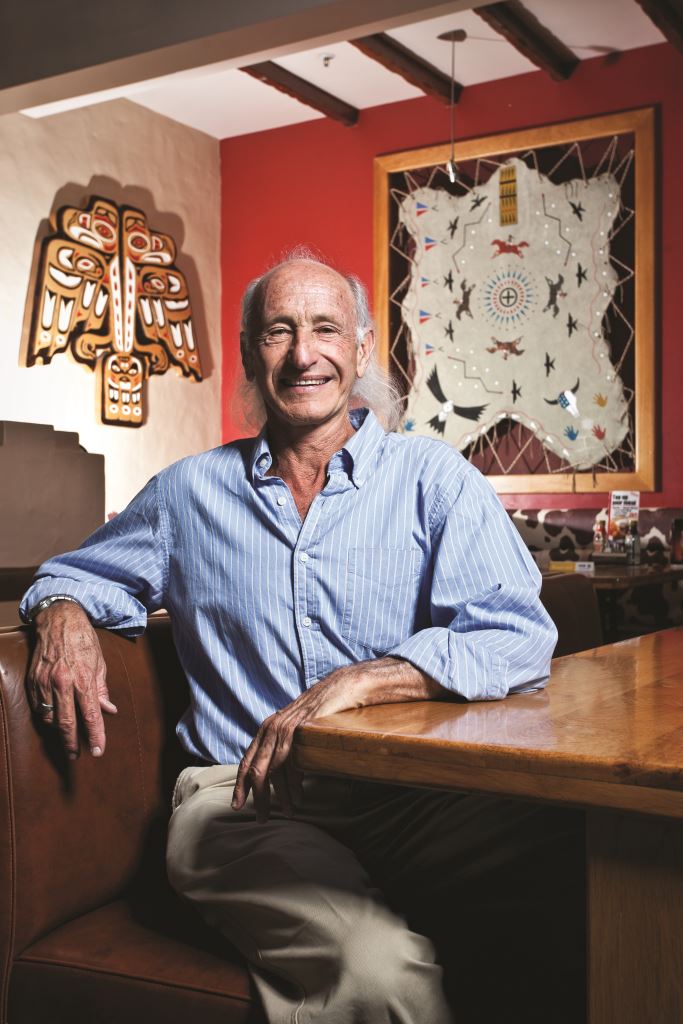He was young, ambitious, eager… and bored most of the time. At the age of 24, Allen Ambor had held a few corporate jobs here and there but hated every minute of it.
“I was bored out of my wits,” he recalls.
The last time he had fun working was when he waited tables in a steak house to finance his studies. That’s when he decided that he was going to open his own restaurant.
It started with many challenges. Ambor had saved $215, a fair amount of cash back in 1967, but it wasn’t even a tenth of what he needed. Fresh out of university, he struggled to get a loan or lease for the premises he had found in Cape Town.
“Nobody was willing to sign surety for me,” he says.
Loading...
It took 18 tough months until his persistence paid off. Ambor was ready to open the first Spur steak ranch, a business that would grow into one of Africa’s top restaurant chains.
The obstacles didn’t end there. Ambor had planned to open a franchise of the Johannesburg steak house he used to work at, but the owners let him down just a few days before the launch. They didn’t send the nine employees they had promised to train or any of the kitchen supplies.
“They didn’t have the faintest clue about how to franchise,” he remembers.
Ambor quickly had to come up with a Plan B. Between his girlfriend, who was a good cook, his mother’s food chemist friend and himself, he whipped up various sauces and dressings, which were later to become signature condiments of the business.
To top it all off, Ambor did not receive the promised décor, either. Within days, he had to design his own decoration and logo. In line with the cowboy and crooks theme of most steak houses at that time, he decided on the image of a cowboy boot’s golden spur, which also became the restaurant’s name.
Ambor only changed the logo to the brand’s current Red Indian insignia in the mid-1980s, at the height of apartheid.
“I wanted to give a signal to people of color that they were welcome in our businesses. The Red Indian is spiritual, highly respected and had also been wronged,” he says.
Even though redesigning a company logo bears high risk of losing brand recognition, Ambor felt it was a good move: “It was a gut feel and it turned out to be the right thing at the right time”.
For more than four decades, he would trust his instincts as much as his business acumen and thus grow Spur into a $35.9 million global brand with 240 local and 29 international restaurants, including in the United Kingdom, Australia and a range of African countries: Botswana, Kenya, Lesotho, Malawi, Mauritius, Namibia, Nigeria, Swaziland, Tanzania, Uganda, Zambia and Zimbabwe.
“I don’t just work with a calculator. In the restaurant business, it’s gotta come from the heart. If you are only worried about the back pocket, it’s not going to work,” he says.
Ambor understood right from the start that making customers happy is the most important aspect of any restaurant business.
“Consistency, delivery and caring are the key things it comes down to,” he says.
That meant giving customers value for money, even if profit margins were not as high as they could have been. For three years after opening his first Spur, Ambor didn’t increase the menu prices.
“It was a signal that we weren’t just out for profit. I wanted to let my customers know that I was loyal to them, hoping they would also be loyal to me.”
The model worked. Spur Corporation set out on a fast-paced expansion strategy. Ambor sold his first franchise four years after opening the first steak house. Today, a franchise license for Spur costs R100,000 ($10,800). In the late 1980s, he added two more family restaurants to the mix: Panarottis pizza pasta and John Dory’s fish and grill. A year ago, Spur Corporation entered the fast food sector when it acquired DoRego’s, which has 75 outlets across South Africa, for R30 million.
“We are constantly innovating,” says Ambor.
But most of all, it was a lot of hard work, says Ambor. He never shied away from getting his own hands dirty and was known for running a tight ship. For years, he worked 20-hour days, setting an example for his employees while training them on the job. Not everyone was pleased to have an employer constantly breathing down their necks.
“People who didn’t like it, left. But those who bought into what we were doing stayed and became pillars of the organization,” says Ambor.
Many of Spur Corporations’ managers started out as waiters in one of the restaurants. One of them is Pierre van Tonder, who began as junior store manager in 1982 and took over the reins last year, when Ambor, at the age of 70, stepped down as CEO.
“You’ve got to be responsible and make sure there is succession,” explains Ambor, who has taken on the role of executive chair.
He now starts his days with yoga and spends only an average of five hours a day at the office. But whoever thinks Ambor is taking it easy couldn’t be more wrong: “I might only be at my desk for a few hours each day, but my head is going all the time”.
Loading...
